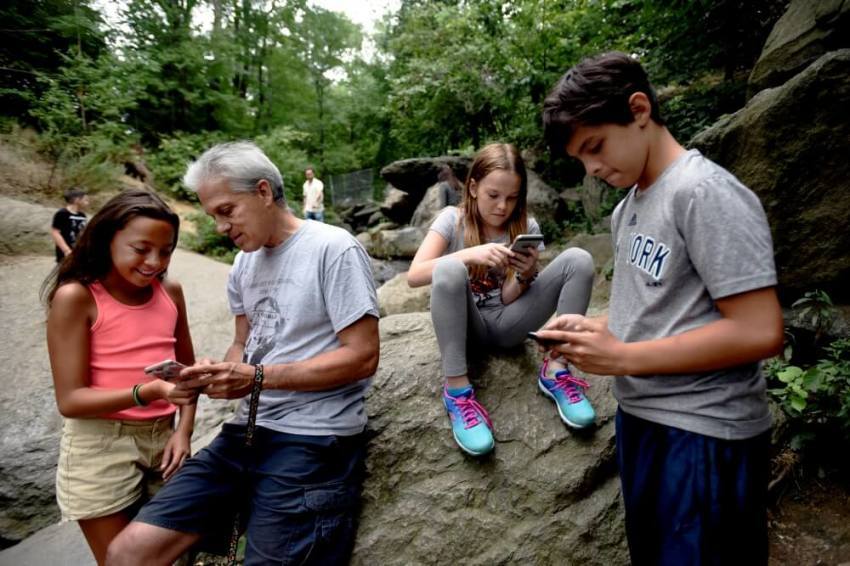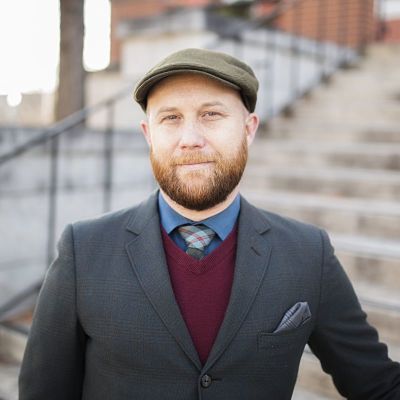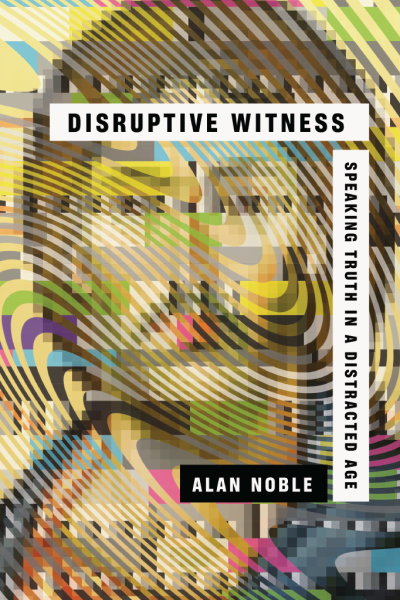Sharing Christ in a Distracting and Secular Age: Author Alan Noble on Being a 'Disruptive Witness'

The twin forces of secularism and distracting technologies present challenges to sharing the Gospel, Alan Noble writes in Disruptive Witness: Speaking Truth in a Distracted Age.
Embracing the Gospel requires thought — reflection and meditation on our own life and how that relates to God's message in the Bible — yet, we are easily distracted from this life-giving task by a multitude of apps available on our smartphones, explains Noble, professor of English at Oklahoma Baptist University and editor-in-chief of Christ and Pop Culture.
"Humans are tremendously gifted at hypocrisy and inconsistency, but a ubiquitous, powerful stream of information and interaction driven by technology enables these gifts to flourish. And that is precisely the problem," he writes in the introduction.
Meeting this challenge is necessary, Noble writes, if the Church in the United States is to flourish.
"Failure to reassess how we bear witness to our faith in the twenty-first century, and failure to take these societal changes into account, has had and will continue to have serious effects on the life of the church and our ability to have a prophetic voice in the world. ... If these trends continue, we can expect the church to dramatically weaken in the United States as Christianity as an identity becomes increasingly intolerable," he says in the conclusion.
The book has two parts. Part one, the first three chapters, describes the problem. Part two offers ways to deal with the problem through personal habits (Chapter 4), church practices (Chapter 5), and cultural participation (Chapter 6).
In this interview with The Christian Post, Noble says the idea for the book came while thinking about popular evangelical author and speaker Francis Schaeffer. Would his approach be effective if he were alive today? He also spoke about phone apps he uses to help him deal with the challenges of modern distractions, the influence of Charles Taylor, what it means to be a disruptive witness, and saying grace in public.
Disruptive Witness was published Tuesday by Intervarsity Press. It's available on Amazon here.
Here is the full interview, conducted last week via email:
CP: Why did you want to write this book?

Noble: It began with the question, would Francis Schaeffer's approach to bearing witness to the faith be as effective today as it was in the 1970s, or has there been a substantial change in the way people think about meaning, purpose, and God? I concluded that a change had taken place, one driven primarily by two forces: secularism and technology of distraction. Disruptive Witness is an attempt to explore what those barriers to belief are and how we should adapt our framework for bearing witness accordingly.
CP: You write that the many distractions we have today are a hindrance to sharing the Gospel. But trying to infect those distractions with the Gospel, such as "Gospel apps," isn't effective. Why is that?
Noble: It is the nature of smartphone applications to not hold our attention very long. We move from one app to another. While playing a game, a text message pops up. While answering email, a notification announces a breaking news story. Cognitively, our minds have become accustomed to conceiving of content on apps as ephemeral. But, as I say in the book, the Gospel is "cognitively taxing," which means that you need the mental space, focus, and time to internalize it in order to feel your need for Christ.
CP: In much of the book you lean upon Charles Taylor's A Secular Age. I've noticed many recent Christian authors are making use of Taylor's work. What accounts for that trend?

Noble: Taylor's book came out in 2007 and I encountered it working on my dissertation a few years later. It is a rich, difficult, and important work for understanding what it is like to live in a secular age and how we got here. I think the increase in Christian authors using Taylor's work recently reflects the last 11 years of Christian scholars and authors slowly digesting and interpreting his tome. Of course, James K.A. Smith's How (Not) to Be Secular did a tremendous job of making Taylor more accessible.
CP: The second half of the book is your "how to" section, how to be a disruptive witness, personally, in the church, and in the culture. You write, "The best strategy for addressing our society's condition is to offer a disruptive witness at every level of life." Give us the short version: What's a disruptive witness?
Noble: A disruptive witness creates the conditions in which our neighbor is invited to contemplate the reality of a living, loving, self-revealing God. It pushes back against the technology of distraction that allow modern people to ignore anxiety, guilt, dread, and hard life questions, and it upsets notions of Christianity as a lifestyle or personal preference.
CP: In Chapter 4 you write about something many Christians experience: that awkward feeling when saying grace while dining out and feeling like you might inconvenience your server. How is (or isn't) saying grace in public an example of disruptive witness?
Noble: Saying grace, when not done ostentatiously, is a disruptive witness in two ways. First, you are verbally proclaiming that your meal is a provision from God — not human ingenuity, not your labor, not your wealthy, not modern farming practices, but in an ultimate sense, God's common grace is the reason you have this meal.
Such an act of prayer forms our hearts toward gratitude for God, pushing back against our default belief that whatever we have is the result of our labor, the work of other humans, or natural forces. There is someone beyond all of these. Second, it is a public proclamation.
Secularism tends to push our beliefs toward privacy. We are comfortable with people being religious so long as they don't act religious around us. Because if they do, that suggests that maybe their belief is something we ought to consider as well. Saying grace in public cultivates your gratitude to a loving God and challenges the notion that faith is individual.
CP: After I read your Chapter 1, I picked up my phone to check Facebook and Twitter. I understood the irony as I was doing it. What are some things you've worked on in your own life to keep yourself undistracted in our distracted age?
Noble: I have been telling people that I am not a guru, by which I mean that I don't have this perfected in my own life, even though I have spent a lot of time working through the ideas. And I don't know many people who do. My own bad habits helped inspire this book.
Practically, I have an app called "Moment" that monitors my app usage and time and can lock my phone for certain periods of time. In my web browser I use an extension called "WasteNoTime" that can block certain sites for certain periods. Both of these help.
My general advice is to show grace to others and yourself while encouraging one another to have healthy boundaries with technology. We shouldn't expect everyone to use smartphones in the same way or for the same amount of time, but all of us need to be reflective, honest, and disciplined. This is a long process because new technology will provide new challenges for our habits.



























